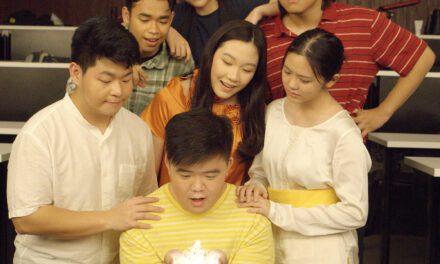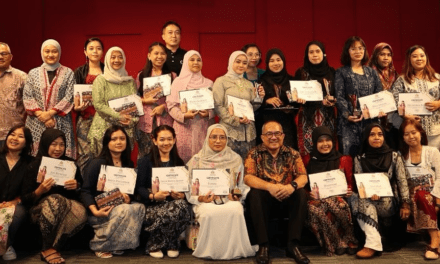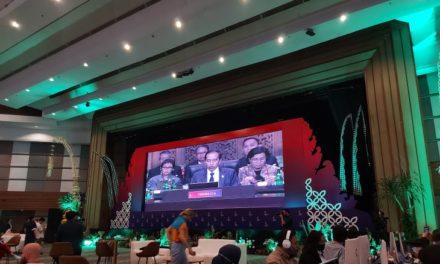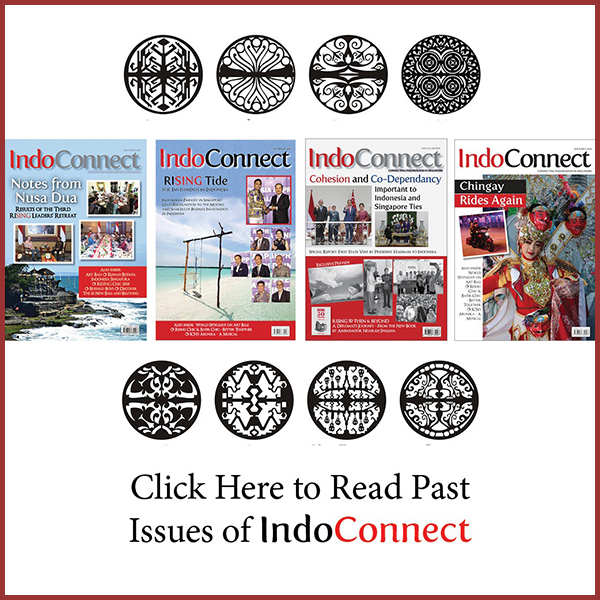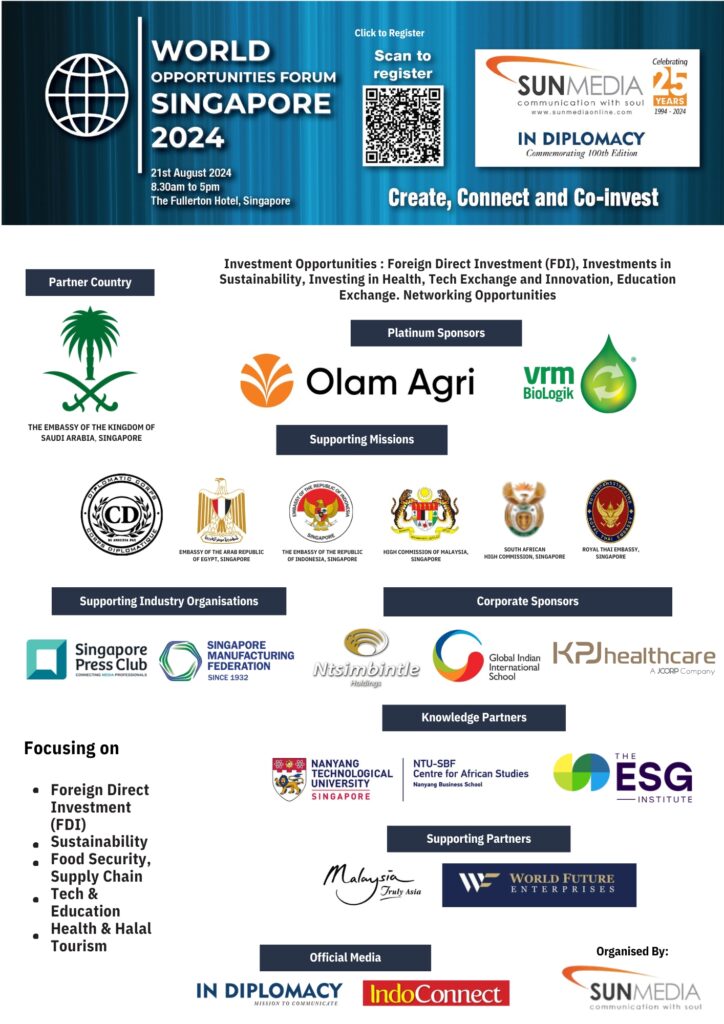Whether it is in the contexts of politics, work, education or even just running a household, Anita Ratnasari is passionate about advancing the cause of women, especially Indonesian women, in playing a greater part in the development of the nation. That is the first thing we noted when IndoConnect Magazine’s Editor-in-Chief visited her lovely home in May to ask her thoughts as someone who has travelled extensively and interacted with the Indonesian diaspora all over the world.
Her husband is the Chairman and founder of CT Corp (Indonesia) with multi-business interests extending from the finance to media sectors. In May, President Susilo Bambang Yudhoyono appointed him the Coordinating Minister for Economics of Indonesia. She and her husband founded CT Foundation, to help people to improve their lives by giving full access to better education for children who come from disadvantaged families. Over the years, the foundation has provided assistance to the community in the form of financial aid, disaster relief, education, and other humanitarian activities.
Outwardly, Indonesian women look gentle and soft in appearance and actions but this does not mean they are weak. One must look at them with a different eye and see their inner strength
Anita, the 46-year old mother of two children is also a published author and wrote Pesona Solo which she dedicated to her parents on the rich cultural heritage of Solo where they hail from. But it is in the area of education that she is most passionate about.
Please share with our readers about your life here in Singapore?
My husband and I are from Jakarta and we have been married for 20 years now; along with our two children, we have been living in Singapore for the past two years. Our 17-year old daughter and 11-year old son are both studying here. With business interests in Indonesia, we travel very frequently to Jakarta and other parts of Indonesia from here.
You have recently launched a book on Indonesia. Please share more about this book and what inspired you to write this?
Although I was born in Jakarta, my parents’ roots are in Solo which is just an hour away from Yogyakarta. I spent a major part of my childhood there and love that part of Indonesia for its rich culture and vibrant way of life.
Unfortunately, unlike places such as Bali and Yogyakarta, not many people know about this region of Indonesia. I wanted to introduce this beautiful city to the world; that is why I took up this writing project on Solo, which is rich in culture as well as possessing beautiful natural scenery.
It took me two years to write this book. I wrote it in Bahasa Indonesia and launched it last November. The book is published by PT Gramedia Pustaka Utama. We plan to translate it into English this year. Presently, the Indonesian version is available in Indonesia as well as in major book stores in Singapore.
Being a busy mother with various interests, how do you manage your time?
I usually devote my mornings to my children and husband by managing their breakfasts and helping them to school and office. I start my other activities only after this as I believe in prioritising my family and giving them my attention and care.
Tell us about your childhood and how you met your husband?
My parents are both doctors and they met each other at medical school at Yogyakarta. I was born in Jakarta and studied dentistry and then later did a post graduate course in hospital management. I met my husband while I was at university. We actually met at a famous restaurant and that’s when our love story began!My husband, Chairul Tanjung comes from a humble background and has worked his way up in life with so much dedication. I am really very proud of him and his achievements. He is very detailed in all his work and believes in getting things done efficiently. We trust each other immensely and he has been a great inspiration to me.
Please share with us about your bond with your children. What hopes and aspirations do you have for them?
I am very close to my children, we share a friendship that is very important to me. Both of them confide in me and even share about their boyfriends or girlfriends. I maintain an open communication with them which encourages them to be frank with me. My daughter, Putri, will be going to university in Los Angeles next year. We chose America because we hope that she will take up the reins of business after her father especially in media. My son is very much interested in architecture and engineering. While he is just 11 years now, he already takes a lot of interest in this field. On our trips to Dubai, my son gets very interested in the different kinds of buildings and structures found there. He studies them in detail.
What do you think about the Indonesian Woman of today?
The ideal Indonesian woman I think is someone who is not only educated but has also an international outlook. And she is bold enough to step forward and promote the country’s culture, traditions, arts and crafts even products to the world whenever there is an opportunity to do this.
Outwardly, Indonesian women look gentle and soft in appearance and actions but this does not mean they are weak. One must look at them with a different eye and see their inner strength; they not only contribute to the economy but also care for their family. In Solo, many women are gentle in nature but they physically work very hard in the plantations, in the markets, craft centres etc.
It is a popular saying that behind every successful man, there is a woman. What role did you play in your husband’s success?
Marriage is all about trust and we have immense trust and respect for each other. I have never failed to encourage and support him in all his endeavours. Often, between spouses there exists some misunderstandings and resentment. But in all our 20 years of married life, I have ensured that I understand his commitments and don’t complain about the time he dedicates to his business.
With such varied businesses, my husband travels very often and keeps a very tight schedule. I usually join him during his business meetings especially if it’s abroad. As he is an entrepreneur, he often consults me before acquiring another project. My post graduation in hospital management has given me an understanding of business which I use to give insights to my husband. I share my inputs and opinions with he greatly values.
My husband’s business interests range from mega banks, media, hotels to fashion. Recently, he has set up a business in the export of shoes from St Michael’s shoe factory. Out of all his business interest, I especially like Trans Fashion* and take a special interest in them.
You have been very much involved in giving back to society. Can you please share with us about your efforts in this area?
I strongly believe that education is one of the most important requirements for the upliftment of the poor and underprivileged. For this purpose, we have set up CT Foundation, a charitable trust that provides education to children. Recently, we helped support tsunami affected children and housed them in Medan. We helped them get scholarships so they can go for higher education. All the children were brought from various tsunami affected islands and brought to Medan so that they can continue their studies there. We are also working very hard to get them scholarships in good universities for their tertiary education. Currently, we fund their tuition, books, food, shelter and transport needs.
We also create health awareness campaigns, e.g. on dental and hygiene matters and conduct health examinations and educate through our Mobil Sehat (mobile health clinics).
Next year, I plan to set up another Foundation, but this time in Solo. Through this charitable foundation, we will help skilled workers who are poor but talented in art such as weaving, batik and market their products abroad.
As a philanthropist, what is your opinion about Indonesian women who come to Singapore to work as domestic helpers? How can they be helped?
I feel that the Indonesian government should provide support and training to give them skills in their work. It is also important that they be trained to handle various modern appliances and undergo a strict selection process. Only education and training can empower them to be independent.
Most women, after working here for long, when they go back home, they again fall back into poverty. Instead of just providing them with employment, if government looks into training them, they will always have these useful skills to fall back on and make a living.
On a lighter note, what is your favourite destination in Singapore that you often go to as a family?
Dempsey Road is one of my favourite places as it has a lively and beautiful atmosphere. Apart from this, we often go to Sentosa, Universal Studio or Marina Bay Sands during our leisure hours. For shopping, I like Ion Orchard as it gives a complete retail experience.
Pesona Solo – A Personal Journey through Solo
Anita Ratnasari sets out to capture the rich culture of Solo with the launch of her book ‘Pesona Solo’ last November. The event was graced by the Minister of Education and Culture Mohamed Nuh, the Minister of Information and Communication, Tifatul Sembiring and Minister of State-Owned Enterprises, Dahlan Iskan. “There should be more books such as Pesona Solo that explores Indonesian culture,” said Minister M Nuh.
During the interview commemorating the launch oft he book, Anita revealed that the way of life in Solo has influenced her immensely. Both her parents came from Solo and have imbued in her with those values. Through the book, she has presented various aspects of Solo, from its natural beauty, places of worship to its renowned arts and handicrafts. “This book also highlights the women of Solo who are gentle in their ways yet hardworking and an inspiration to me,” said Anita.
The large format hard cover book has 189 pages and Anita hopes readers will fall in love with the ‘Charms of Solo’ first and also the rest of Indonesia. For her, the main objective is to let readers know that Solo has much more to offer than just beautiful batik, there is also much to appreciate for its great cuisine and cultural heritage.
 The book chronicles with beautiful photography many facets of the city: Anita starts with the founding of Solo and the impact of the city had on her life. She next devotes a chapter to the royal palaces, not just their history but also their functions and uses today and the important role they play in preserving Solo’s cultural heritage. Another chapter covers the beauty of Solo’s batik and kebaya which is illustrated with stunning examples and explanations for the different types of motifs and designs. She also pays tribute to the women of Solo who are playing an important role in the economy by developing the batik industry there. She also takes the readers on a personal tour of the historical landmarks before ending the book on the rich cultural visual and performing arts that are still thriving in the city today. In the end readers will agree that the book has truly captured the Charms of Solo.
The book chronicles with beautiful photography many facets of the city: Anita starts with the founding of Solo and the impact of the city had on her life. She next devotes a chapter to the royal palaces, not just their history but also their functions and uses today and the important role they play in preserving Solo’s cultural heritage. Another chapter covers the beauty of Solo’s batik and kebaya which is illustrated with stunning examples and explanations for the different types of motifs and designs. She also pays tribute to the women of Solo who are playing an important role in the economy by developing the batik industry there. She also takes the readers on a personal tour of the historical landmarks before ending the book on the rich cultural visual and performing arts that are still thriving in the city today. In the end readers will agree that the book has truly captured the Charms of Solo.







